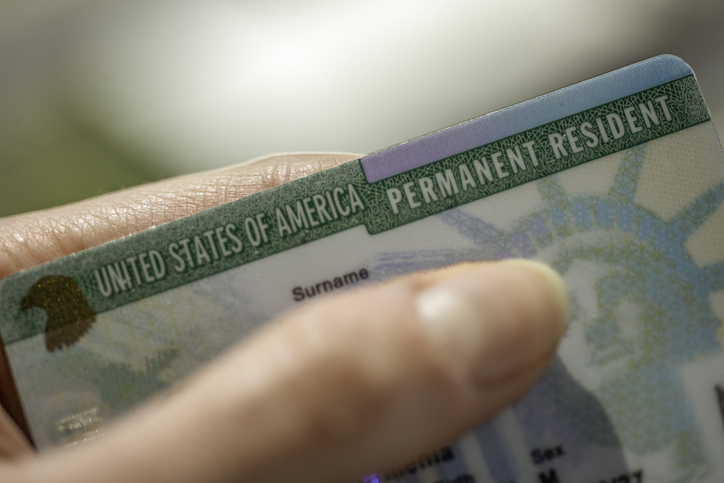Filing for disability benefits can feel like navigating a bureaucratic maze, especially when your claim is denied. For many applicants, the next step is to appeal a disability claim with the hope of overturning that initial rejection. But what happens if your appeal is also denied? Can you go through the process again? And if so, how?
Understanding whether you can appeal a disability claim twice isn’t just a matter of knowing your rights—it’s about knowing how to exercise them strategically. The disability appeals process has multiple levels, each with its own standards, timelines, and rules about evidence. A second appeal isn’t merely a repeat of the first—it requires a different mindset, additional documentation, and a much stronger case.
If your first attempt failed, you cannot afford to treat your second one casually. This guide walks you through the legal pathways available after an initial appeal is denied and outlines how to approach a second attempt in a way that maximizes your chances of success. Whether you’re just starting the appeal process or looking to try again, knowing what to expect is essential.
Why Timing Matters When You Appeal a Disability Claim Again
Once a disability claim is denied, there is a strict deadline to file an appeal. If your first appeal is unsuccessful, and you wish to pursue it further, you’re typically required to act within 60 days of the denial notice. Failure to meet this deadline usually closes the door on further action, unless you can prove extraordinary circumstances prevented you from responding on time.
When you consider a second attempt to appeal a disability claim, you’re entering a different stage of the process—typically a hearing before an administrative law judge or a request for review by the Appeals Council. The timing of each step is not just procedural; it influences what kind of evidence you can submit and how much control you retain over your case. Procrastinating at this stage can cost you the opportunity to strengthen your position.
Building a Stronger Case for Your Second Disability Appeal
The most common reason for denial during the first round of appeal is insufficient medical evidence. Too many applicants submit the same records from the initial claim, expecting a different result. This approach rarely works.
If you’re going to appeal a disability claim a second time, your strategy needs to change. Instead of repeating prior mistakes, focus on strengthening the evidence. This could include newly diagnosed conditions, updated treatment histories, detailed physician evaluations, and Residual Functional Capacity (RFC) forms tailored to your limitations.
Also, ensure that your medical records explain how your condition impairs your ability to work in clear, clinical terms. Avoid vague language. Your goal is to make it unmistakably clear how your condition prevents substantial gainful activity, which is the key metric used in disability evaluations.
Can You Appeal After a Hearing-Level Denial?
Yes, you can. If your claim has been denied after a hearing with an administrative law judge, the next step is to request a review by the Appeals Council. This is your opportunity to demonstrate that the judge made a legal or procedural error. However, this level of review is far more technical. The Appeals Council is not tasked with re-evaluating your entire case—they’re there to determine whether the law was properly applied.
Understanding the role of the Appeals Council is critical when you decide to appeal a disability claim again. You will not have the opportunity to introduce significant new evidence unless you can prove it wasn’t available at the time of your hearing. Therefore, the strength of your argument lies in demonstrating that the judge failed to consider key facts or misapplied legal standards.

When Is It Time to File a New Disability Claim Instead?
There’s a point at which a second appeal may not be the most effective route. If you’ve exhausted all administrative levels of appeal and still face denial, your next option might be to file a new claim altogether. This is typically the case when your medical condition has worsened or you’ve received a new diagnosis that significantly changes the picture.
However, be careful with this strategy. Starting over means abandoning your current case, which could reset the clock on back pay and benefits eligibility. You must weigh the potential benefits of a fresh claim against the time and resources already invested.
Before abandoning your existing appeal, consult a credible resource or review official guidelines such as those provided on the SSA’s Disability Appeals Process, which outlines each stage in detail and offers information on when a new application might be appropriate.
The Legal Thresholds Remain the Same—But Your Argument Shouldn’t
One of the most overlooked aspects of multiple appeals is the assumption that the legal criteria change. They don’t. Whether it’s your first, second, or third attempt, the SSA will still evaluate your claim using the same standards of medical eligibility, work history, and vocational limitations.
What must change is the strength of your appeal. You’ll need to provide fresh evidence, improve clarity in how your impairments limit your work ability, and eliminate any inconsistencies in previous submissions. The narrative must be stronger, the documentation tighter, and your case presentation much more cohesive.
Why Your Work History Still Matters the Second Time You Appeal
Many applicants believe that once their work history has been submitted in the initial claim, it doesn’t need further discussion. That’s a serious mistake. Your work history continues to play a pivotal role even in later stages of appeal.
In a second attempt to appeal a disability claim, failing to revisit or update your employment background can weaken your case. Your records must clearly demonstrate why you cannot return to previous jobs and why no reasonable alternative employment is available given your condition. Include new statements or vocational assessments that clarify job-specific limitations. The more tailored your documentation, the more persuasive your case becomes.
Be Strategic With Psychological and Cognitive Impairments
Another way to enhance your appeal is by including mental health conditions that may not have been emphasized in your original claim. Depression, PTSD, anxiety, and cognitive dysfunction are valid grounds for disability benefits and are often under-documented.
If you suffer from any of these, include updated psychological evaluations, therapy records, or psychiatric treatment summaries. Many applicants fail to document how their mental health conditions interact with their physical impairments, reducing the strength of their appeal. A complete picture of your overall limitations improves the odds of a favorable outcome when you appeal a disability claim a second time.
Clarity and Consistency Matter More Than Ever
Inconsistencies across your medical records, application statements, and appeal documents will raise red flags. These discrepancies can damage your credibility, even if they are minor or unintentional. Before proceeding with your second appeal, perform a complete review of every document and statement you’ve submitted. Ensure your narrative is consistent throughout.
For example, if your first application said you could walk a block but your appeal says you can’t walk at all, you must reconcile that difference with updated medical records and clear explanations. The appeal reviewer is evaluating not just your medical condition, but your reliability and honesty.

When to Reframe Your Appeal as a Persuasive Legal Narrative
Too many appeals are denied simply because they read like a pile of paperwork rather than a compelling case. When preparing to appeal a disability claim a second time, your submission should tell a cohesive, credible story. How has your condition progressed? What daily activities are impossible now? How have repeated efforts to work failed due to your limitations?
Framing your appeal with a clear narrative arc—backed by strong evidence—helps reviewers connect the dots. You’re not just sending in forms; you’re making a case for why your situation meets the legal definition of disability. Approach it like a legal argument, with structure, clarity, and substance.
You Can Appeal More Than Once—But Not Forever
It’s crucial to understand that while you can appeal a disability claim more than once, there are limits. Once the Appeals Council denies your request or refuses to review your case, your next option is a federal lawsuit. That’s not an appeal in the traditional sense—it’s civil litigation.
Before reaching that point, you must have exhausted all other administrative remedies. This is why every level of appeal must be taken seriously. If you mishandle earlier stages, your ability to recover benefits later becomes significantly harder. Always ensure that each appeal stage is stronger than the last and that it addresses every issue previously raised.

An Important Resource for Strengthening Your Second Appeal
If you’re still unsure how to approach your second chance, a detailed guide like the one found in this long-tail discussion on why you should always appeal a disability claim can provide invaluable insight into what makes or breaks a case. Learning from real-world examples and structured advice helps you avoid critical errors and present your case with greater precision. Whether you’re submitting updated medical records or refining your legal narrative, appealing a denied disability claim with better strategy can change your outcome.
Final Thoughts on Appealing a Disability Claim Twice
Multiple denials don’t mean your case is without merit. In fact, many successful claimants are those who refused to give up after their initial appeals. If you’re determined to appeal a disability claim again, do it with more preparation, better documentation, and a well-defined strategy. Each level of appeal gives you a fresh opportunity to demonstrate your eligibility—but only if approached with intention and clarity.
Appealing twice is not about persistence alone—it’s about refinement. Learn from past mistakes, strengthen weak points, and treat every submission like it matters, because it does. Your benefits depend on it.
Please read our other blog Long-Term Disability Claim ERISA Appeal Guide to better understand how ERISA laws impact your disability benefits and what steps to take when filing an appeal. It’s a helpful resource for navigating complex claims and learning how to strengthen your case even further.





























